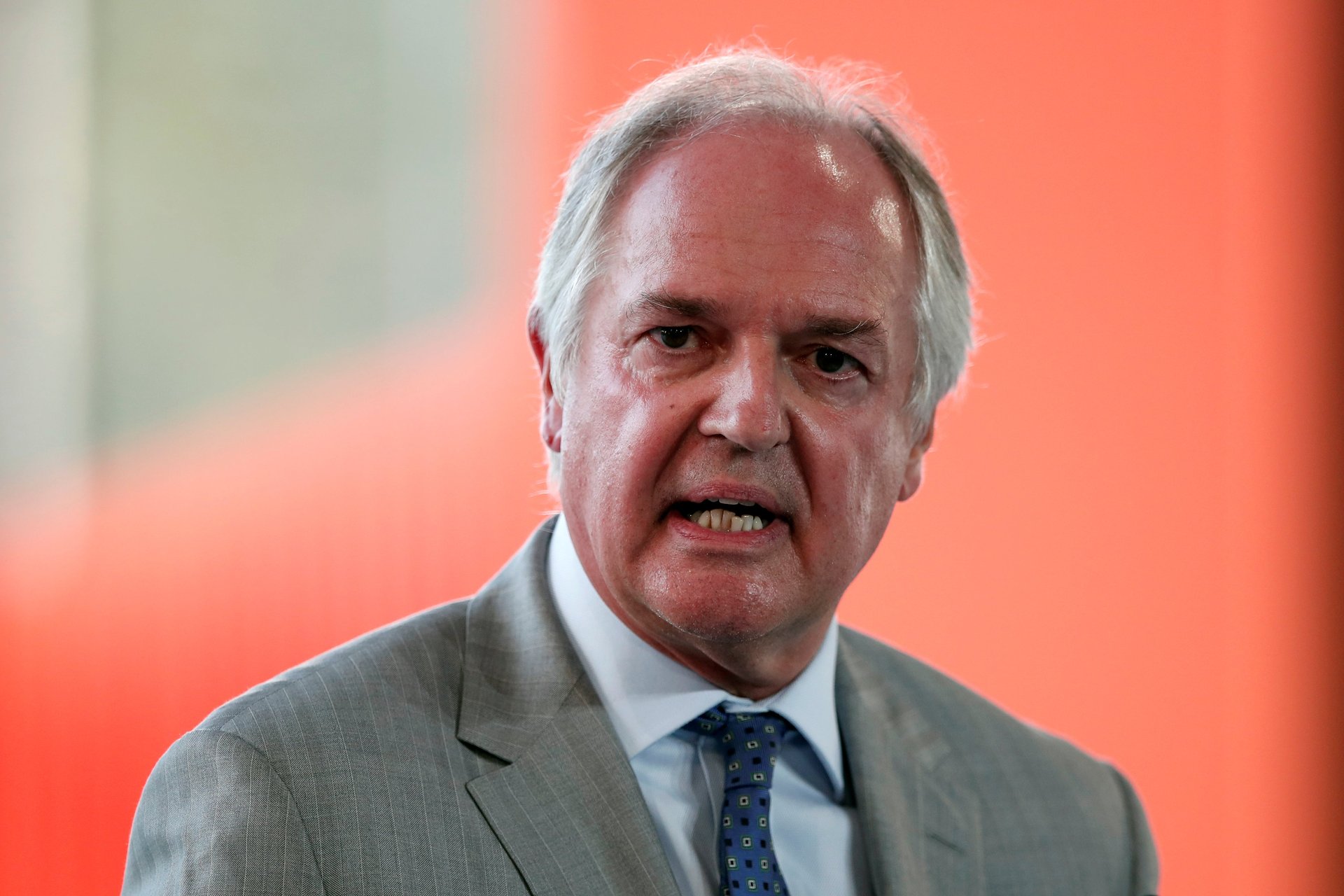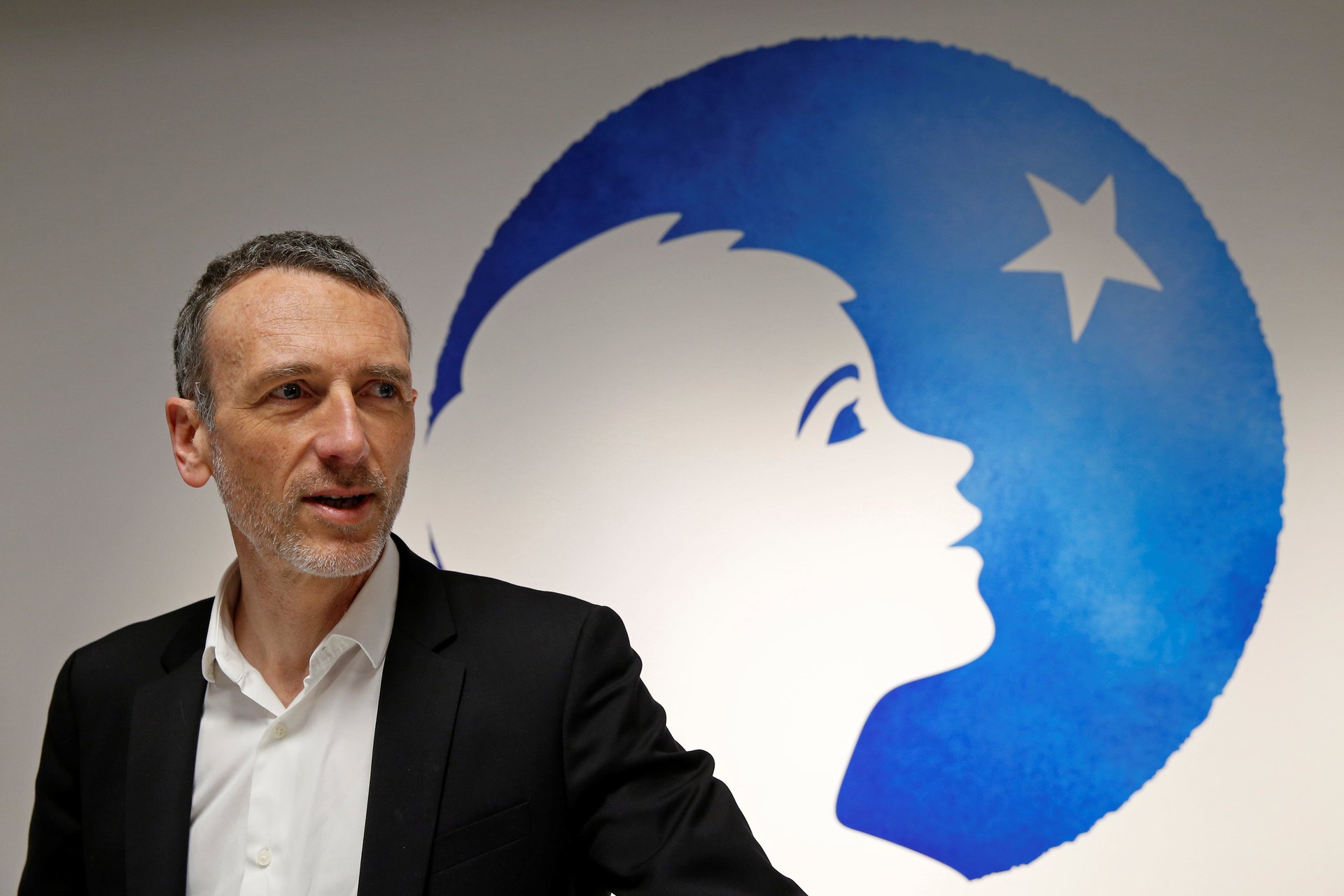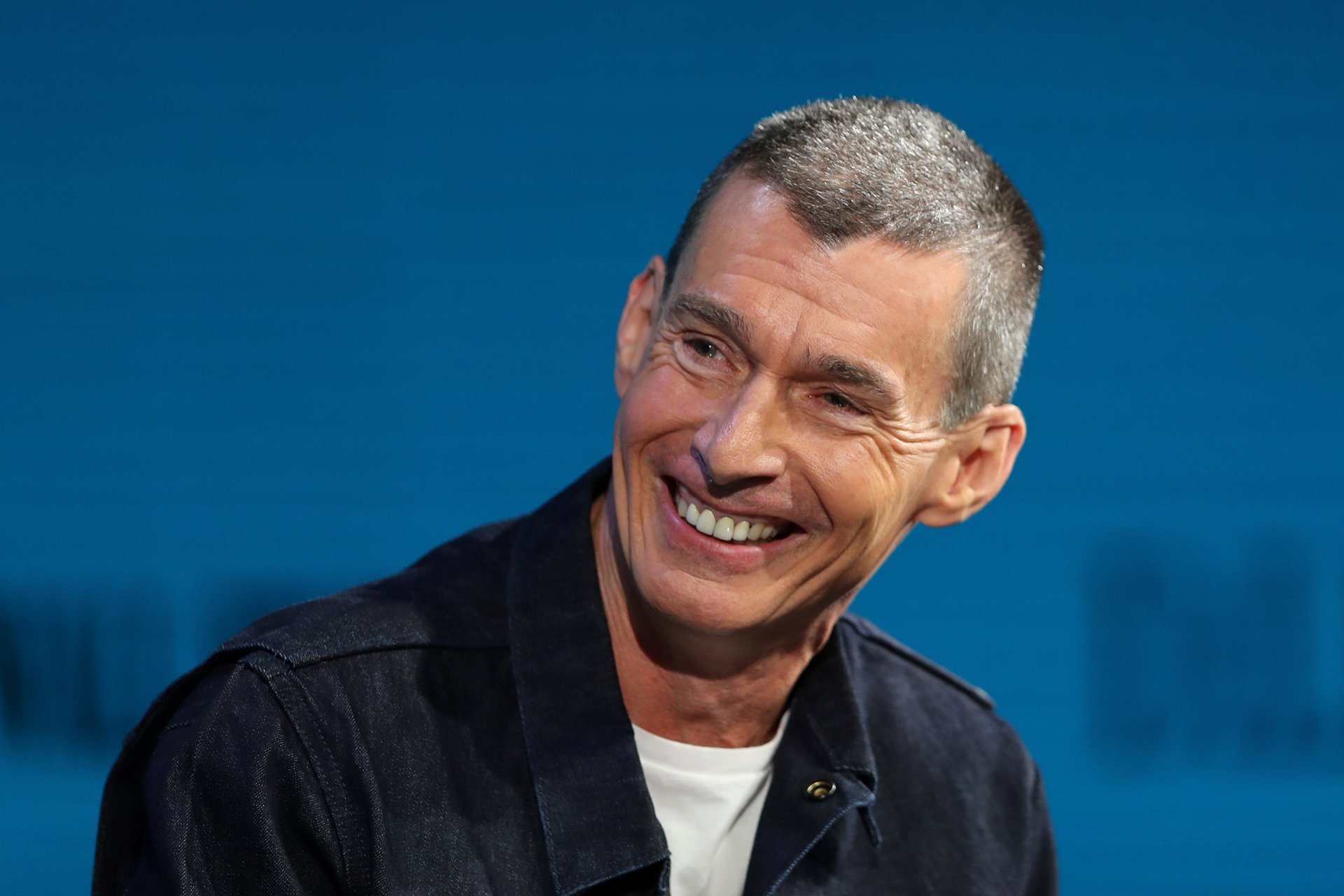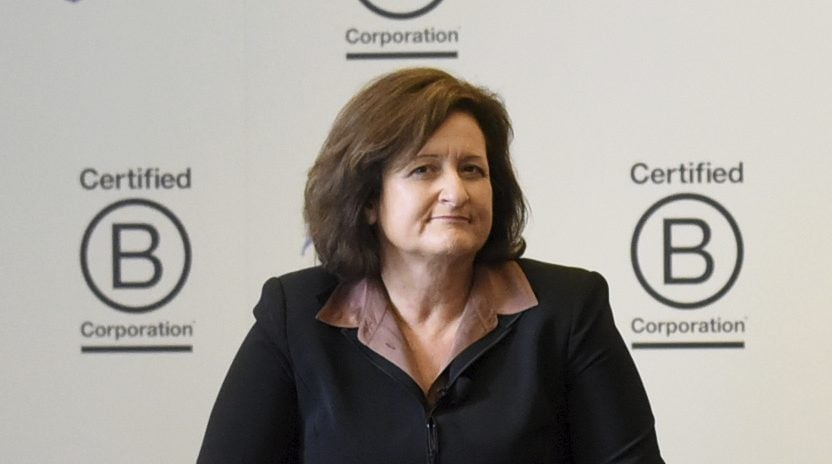Who will replace Paul Polman as the face of sustainable capitalism?
It’s been nearly a year since Paul Polman stepped down as CEO at Unilever. By all accounts, the handover to longtime company insider Alan Jope was a smooth one. But in his broader role as the corporate world’s leading voice on sustainable capitalism, Polman is still without a true successor.


It’s been nearly a year since Paul Polman stepped down as CEO at Unilever. By all accounts, the handover to longtime company insider Alan Jope was a smooth one. But in his broader role as the corporate world’s leading voice on sustainable capitalism, Polman is still without a true successor.
There is no shortage of CEOs who are now willing to embrace of a grander purpose than enriching shareholders—a marked change from when Polman started talking about it (paywall) a decade ago. But few of those CEOs are backed by the sheer heft of a business like Unilever, a gargantuan, global operation with 155,000 employees, a range of well-known consumer brands (Dove soap, Lipton tea, and Sunsilk shampoo among them), an €8 billion ($8.9 billion) advertising budget, and a sprawling supply chain. These are key ingredients for exerting influence; when Unilever decides to favor sustainable ingredients or cut back its use of non-recycled plastic packaging, there are ripple effects through the economy.
Polman, in his retirement, is still fighting the good fight, which might be why, in sustainability circles, he is still the default example of an executive aligned with the cause. But is there another, sitting CEO ready to take his place as the corporate world’s unofficial spokesperson for sustainable capitalism? Jules Kortenhorst doesn’t think so. As head of the Rocky Mountain Institute, a nonprofit think tank working with businesses to accelerate the shift from fossil fuels to renewable energy, he regularly scours the private sector for willing partners.
“At the moment, I do not see any single leader who has the moral standing, the courage of his or her convictions, and the backing of his or her board such that I think anyone is ready to inherit Paul’s mantle,” says Kortenhorst, a former member of Dutch parliament and founding CEO of the philanthropic European Climate Foundation.

But Kortenhorst, who previously worked for 10 years at oil giant Shell, says he believes “that there are CEOs out there who are searching, who are struggling with the moral and ethical questions that Paul struggled with and dealt with, and are looking for ways they can successfully run their business in the context of the market, and in a way which secures the success of their business and helps them shift their company toward a sustainable future.”
Which of them might emerge as a worthy successor to Polman as a leading voice on corporate responsibility? Quartz scoured global boardrooms as part of our research for The New Purpose of Companies, a special project examining the world beyond shareholder returns and the forward-thinking business leaders figuring out how to navigate it. Here’s how we rate the field of potential Polman successors:
Doug McMillon, Walmart

CEO since: 2014
Sustainability credentials: A 30-year Walmart veteran who started with the company as a teenager, unloading trucks for hourly pay, McMillon is now plowing money into wages, new benefits, and training programs for workers. He’s also been scaling back the company’s guns and ammunition business. In January, he replaces JPMorgan Chase’s Jamie Dimon as chairman of the Business Roundtable, a powerful lobbying group of roughly 180 US CEOs. On the environmental front, through its Project Gigaton program, Walmart aims to cut 1 billion metric tons of CO2 emissions out of its global supply chain by 2030, while doubling its use of renewable energy and reducing its own emissions 18% by 2025, versus 2015 levels.
Skeptics will note: Walmart has been an artful tax dodger in the US, and the Project Gigaton program is strictly voluntary, with suppliers incentivized only with the promise of having news of their efforts shared “within Walmart, the supplier community, and publicly.”
Chances of grabbing the mantle from Polman: Reasonably strong. But it won’t last if Walmart can’t fully break from the kinds of behaviors that not long ago led to a bribery scandal in Mexico, and a raft of gender-discrimination lawsuits.
Alan Jope, Unilever
CEO since: 2019
Sustainability credentials: Jope has a tremendous platform—and, of course, precedent—on his side. A Unilever lifer who led the company’s beauty and personal-care business before being tapped to replace Polman as CEO, Jope can speak fluently about purpose without getting too pie-in-the-sky about it. “Purpose is one of the most exciting opportunities I’ve seen for this industry in my 35 years of marketing,” he said at this year’s Cannes Lions festival, before warning the glittering gathering of marketing executives that that “woke-washing” was rampant. “Purpose-led brand communications is not just a matter of ‘make them cry, make them buy,’” he said. “It’s about action in the world.” Under Jope, Unilever announced it will halve the use of virgin plastic in its packaging by 2025 and invest in recycling operations in various countries, with the goal of collecting and processing more plastic packaging than it sells.
Skeptics will note: Polman leaves big shoes to fill, and Jope may want to be careful filling them; though sustainability advocates embraced his predecessor, the Wall Street Journal noted in 2017 (paywall) that Polman’s activism “at times ruffled critical investors, who called it a distraction.” That also was the year Polman had to fight off a hostile takeover bid from Kraft Heinz. Will his successor be willing to risk losing financial focus to take on a bigger ambassadorial role on behalf of sustainable capitalism?
Chances of grabbing the mantle from Polman: Good, if he wants the job.
Emmanuel Faber, Danone

CEO since: 2014
Sustainability credentials: Under Faber, the Paris-based food and dairy empire—its brands include Danone yogurt (Dannon in the US), Evian water, and Aptamil baby formula—has already become the world’s largest B Corporation thanks to the certification of its North American subsidiary. Now, it’s working to get the rest of the company certified. Faber (pdf) is experimenting with sustainability-minded finance and is an advocate for regenerative agriculture. At the UN Climate Action Summit in September, he announced the formation of a 19-company coalition promising to reduce deforestation, restore soil health, and protect the Earth’s biodiversity.
Skeptics will note: With 2018 sales of nearly €25 billion, Danone is half the size of Unilever by revenue, and Faber, though energetic on the issues, has yet to amass a Polman-level international profile.
Chances of grabbing the mantle from Polman: Decent.
Marc Benioff, Salesforce
CEO since: 1999
Sustainability credentials: If wanting the job was the only factor, Benioff would have it. Just check out the subtitle of his 2019 book Trailblazer: The Power of Business as the Greatest Platform for Change. Or watch him serve as the unofficial mayor of Davos, where this past year he gleefully got hundreds of well-heeled executives in a room and invited environmental activist Greta Thunberg to completely school them on their ties to major polluters. Benioff went head to head with Twitter CEO Jack Dorsey over a corporate tax increase in San Francisco meant to help the homeless (Benioff was strongly in favor) and he and his wife have given away hundreds of millions of dollars to philanthropic causes.
Skeptics will note: While Salesforce’s software is ubiquitous in the corporate world, it isn’t much of a carrot, or a stick, to get other companies to change their habits.
Chances of grabbing the mantle from Polman: Possible, based mostly on Benioff’s sheer force of will.
Chip Bergh, Levi Strauss & Co.

CEO since: 2011
Sustainability credentials: Levi Strauss, the classic denim brand, is increasing its use of sustainable and recycled cottons, and experimenting with less water-intensive cotton alternatives. It’s also reducing greenhouse gas emissions, giving generous parental leave to hourly retail workers along with executives, and investing in employees of the contract factories that make its clothing. Bergh has also been a leading voice among American CEOs pushing for gun control. “I think it’s imperative that companies not be afraid to weigh in on the issues that are really impacting the world, whether that’s gun violence or climate change,” he told Fast Company earlier this year. “If we stand on the sidelines, we’re not really fulfilling our full responsibility to the world.”
Skeptics will note: That’s a lot of issues to tackle all at once, at a company with one-tenth the annual sales of Unilever. Are Levi’s efforts too diffuse to add up to real impact?
Chances of grabbing the mantle from Polman: Possible, if only because of the global resonance of the Levi Strauss brand.
Ed Bastian, Delta Air Lines
CEO since: 2016
Sustainability credentials: Between carbon offsets and more efficient use of jet fuel, Delta has grown without increasing its carbon footprint for six straight years, and it has signed on to the International Air Transport Association’s goals of halving carbon emissions by 2050, versus 2005 levels. Delta was the first US airline to let fliers purchase carbon offsets, starting in 2007, and the first to recycle onboard waste.
Skeptics will note: It’s still an airline. And as Bastian himself recently said, “We’re seen in the world’s eyes as somewhat of a dirty industry, yet we have done a tremendous amount of good. … We have been terrible advocates of our own cause.”
Chances of grabbing the mantle from Polman: Plausible, but not likely.
Rose Marcario, Patagonia

CEO since: 2014
Sustainability credentials: A brand that naturally promotes both the adventuring opportunities and conservation needs of the great outdoors, Patagonia is admired by fans for its ethical sourcing guidelines, clever marketing, employee perks like its on-site daycare, and a general distaste for finance bros. It’s gotten political in the past two years, endorsing US Senate candidates in Montana and Nevada. As an early convert to B Corporation status, it readily shares its experience with other socially conscious companies considering the certification process.
Skeptics will note: It’s still a niche brand, and Marcario hasn’t sought the spotlight much herself.
Chances of grabbing the mantle from Polman: Slim; if Patagonia were the right platform for a role like this, Marcario would have already won the contest.
Isabelle Kocher, Engie

CEO since: 2016
Sustainability credentials: With the sale of a handful of power plants in Germany and the Netherlands earlier this year, French energy giant Engie reduced its coal-based electricity generation capacity by 75% in the past three years. And the reductions keep coming. What’s in coal’s place? Renewables. In Chile, for example, the company recently announced the closure of two coal units, along with construction of new wind and solar energy capacity, requiring $1 billion of investment. Kocher is lead architect of what the company is calling its “zero-carbon transition.”
Skeptics will note: Engie doesn’t have much name recognition in the US, or even in many places where it has a larger foothold, as the brand was only invented in 2015. (It rebranded from GDF Suez, which itself was a mashup of the merged French utilities Suez and Gaz de France.) Also, it will be difficult for any coal-based power company, present or past, to capture the world’s affection as a sustainability champion.
Chances of grabbing the mantle from Polman: Unlikely.
Jeff Bezos, Amazon
CEO since: 1994
Sustainability credentials: The e-tailing juggernaut was the first signatory of a new climate pledge by companies agreeing to regularly measure and report their emissions, decarbonize in line with the recommendations of the Paris climate agreement, and reach net-zero carbon status by 2040.
Skeptics will note: Bezos was practically bullied into the position by his employees, who were pushing a more aggressive target to achieve net-zero carbon in 2030. The Amazon Employees for Climate Justice also wanted the company to stop funding climate-denying lobbyists and politicians, and to quit offering Amazon Web Services contracts to fossil-fuel companies; there’s no sign that the company will take action on either request.
Chances of grabbing the mantle from Polman: Extremely unlikely without a surprising turn of events that somehow makes Bezos decide to focus on using Amazon’s heft, geographic reach, and business interests (consumables, cartons, delivery logistics, and so on) to move the needle on environmental sustainability in the way he has on the retail industry’s financial viability.
What if there is no successor?
Maha Eltobgy, a member of the executive committee at the World Economic Forum, suggests that Polman, were he still in his Unilever job, might not be the standard bearer for sustainable capitalism today that he was five or 10 years ago. She also raises an interesting paradox: On the one hand, “I think what we’re seeing now, which is quite interesting, is that the bench is becoming deeper, to use an American sports analogy,” says Eltobgy, whose work at the forum is focused on shaping the future of investing. “There are more and more people who I think are intentionally—not reactively, but authentically—taking up these issues, recognizing that for the current market system to continue, it requires a very different approach.”
On the other hand, despite the deepening bench, she is hard-pressed to name a natural successor to Polman. She has some possible nominees in mind, including some of the CEOs named here, and other people to watch for in the future, but like everyone else we spoke to over the course of our research, she couldn’t immediately identify an heir.
Perhaps it’s the case that the world doesn’t need a replacement for Polman, because Polman in a sense has already completed the job he needed to do: He put the demands of sustainable capitalism on the table, in a realm unaccustomed to even discussing the issue.
Maybe what’s left now is the job of figuring out the specifics, company by company and market by market—in which case the next face of sustainable capitalism won’t be one person. Instead, ideally, there could be as many successors as there are companies ready to change their ways.